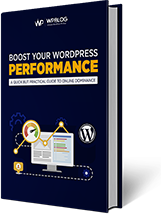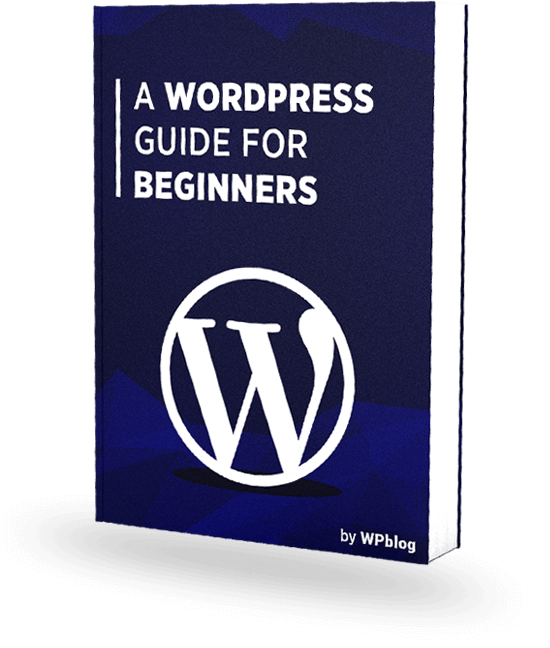Joomla vs WordPress: Which Is Your Go-to CMS

No one can argue the WordPress is widely popular but that doesn’t mean it is the one-all-be-all solution for web developers and content managers. One of WordPress’s long-standing rivals in the field of content management is Joomla.
Both platforms are renowned for their massive customization capabilities, easy-to-use nature and expansive communities. The likeness is almost uncanny, but I’m here to filter out each platform’s strengths and hope that it aids the audience in deciding which one they’d bank on the most by the end of it.
So let’s dive right in and see if we can separate the wheat from the chaff.
Joomla Vs. WordPress: Ease of Use
If you thought most of the people who create websites are professionally trained programmers, then you thought wrong. Turns out they’re just average users who only want to build a site. It is for this reason why the factor for ease-of-use has to be considered for every platform.
WordPress
Installing WordPress will take you no more than five minutes. Many hosting providers of WordPress offers a one-click installation, which makes it rather easier for a newbie who can put up a blog within minutes instead of hours.
After installation, the user will be able to see a clean-cut user interface, full of menus to help them create posts, pages and start installing and customizing their themes and plugins.
Joomla
Now while Joomla might not be as fast as WordPress when it comes to installation, it does come with a few steps that are quite similar to the latter. Turns out that there are many shared hosting providers who provide a one-click install for Joomla too.
After installation, the user will be taken to the control panel that is not really straightforward as that of WordPress’s. There are quite a lot of menus to click on and customizations as well. Although it looks like Joomla is more stacked than WP, beginners will find it tough to maneuver around.
Winner: WordPress
Joomla Vs. WordPress: Security
WordPress
Because WordPress is the most widely used among all CMSs, it is also the one that is virally attacked. Fortunately, the contributors of WordPress are hard at work to secure WordPress and fix vulnerabilities every day. Thanks to thousands of plugins and themes that are available, each WordPress install is unique.
However, while this may be a more secure approach from afar, it is also quite the chore when it concerns security. This is because it is very hard to determine which of these plugins include the right security standards and are compatible with the latest version of WordPress.
What’s worse is that WordPress doesn’t include any of the basic security features such as forcing a Secure Socket Layer (SSL) connection on the dashboard. You will need to add SSL separately. Truth be told, most of the advanced security features come with plugins.
Joomla
Joomla on the other hand, ships with the option to force connections over SSL and one more for two-factor authentication. Add that to the fact that it comes with own security extensions and the developers maintain a list of those extensions with vulnerabilities that are known. The core of Joomla is much secure when compared to WordPress. As a result lesser vulnerabilities are reported in Joomla.
Winner: Joomla
Joomla Vs. WordPress: Themes and Addons
Both platforms are fortified with an expansive library of themes, extensions and addons.
WordPress
With the use of WordPress themes, you can alter the appearance of your WordPress site, however you please. WordPress comes packed with a couple of default pre-installed themes.
If you ever feel like adding in a new theme, all you have to do is to click on the “add new” button on the Appearance page and install free themes from the official WordPress.org theme directory.
You are liable for premium themes from third-party theme shops like StudioPress, ThemeLab, Envato and Themify, but you’ll have to pay for them of course.
But the real beauty of WordPress comes in its plugins. In fact, there are over 38,000 plugins that are available for free from the WordPress plugin directory. You can add any feature you would like into your WordPress websites using these plugins.
Joomla
Joomla comes loaded with an array of extensions and templates much like WordPress. There are a wide range of extensions with a number of functionalities like creating an ecommerce store and managing email.
The only downer is that these templates and extensions lack the simplicity build that WordPress possesses. Joomla extensions are well coded so we can not say quality is the issue
As for templates, users will have to manually search up templates and install them by adding their URL.
Winner: WordPress
Joomla Vs. WordPress: Search Engine Optimization
For this point, both WordPress and Joomla are pretty much tied in the process. Joomla however, has a bit of an edge when it comes to setting up meta descriptions and keywords for new articles. Still, that doesn’t say much until we look at the various plugins and extensions from both sides.
WordPress
WordPress has the incredibly popular WordPress SEO by Yoast and All in One SEO plugins which boast a collection of valuable features and anyone can get a hold of it in a matter of minutes. What it does is that it categorizes your SEO score in different areas using red, yellow and green colors. It also rates the readability of your posts as well.
Joomla
The only thing that could even come close to WP’s Yoast is Easy Frontend SEO (EFSEO). It enables users to perform a lot of the same tasks as WordPress like editing your meta description right from the front end of your site. There is also an automatic mode for enabling this without your consent.
Even though EFSEO is quite capable, it pales in comparison to the wonders of Yoast.
Winner: WordPress.
Joomla Vs. WordPress: Support Options
It is essential that beginners get all the essential help that they need to get around with either WordPress and Joomla. This is especially important should one struggle on how to use a software.
WordPress
WordPress is phenomenally revered for its robust community of users. You can find any kind of WordPress-related help from official support forums, handbooks, docs, Slack channels, codex and Stack Exchange.
Then there are many many popular WordPress blogs like WPblog, WPExplorer etc., that contains hundreds of tutorials, video tutorials and articles that cater to fresh or beginner WordPress users.
Aside from the free support, you can also get paid help for the platform as well like with Fiverr, Upwork and Elance.
Joomla
Like WordPress, Joomla too has a vast and wide community. It has a large documentation on its website, which is just what beginners are looking for. Users can join forums, IRC chatrooms, mailing lists and more.
Unlike WordPress however, it is very hard for users to find affordable expert help as it costs way more than what WordPress has for itself.
Winner: WordPress
Conclusion
The feud has reached its boiling point and it is safe to say that WordPress wins by a landslide. Joomla is catching up, but it will be a while to usurp the more well-off WordPress. If you think otherwise with what I have produced, do drop your views in the comment section below and I’ll consider it.

Create Faster WordPress Websites!
Free eBook on WordPress Performance right in your inbox.










